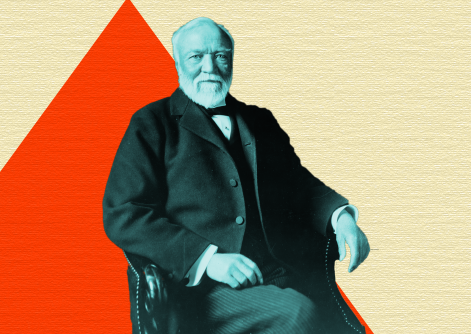Sharp, honest criticism is extremely rare in philanthropy, especially when billions of dollars are sitting nearby. So kudos indeed to the William and Flora Hewlett Foundation for inviting such criticism from William Schambra of the Bradley Center for Philanthropy and Civic Renewal. His vigorous critique of “strategic philanthropy,” given at Hewlett, has just been published in Nonprofit Quarterly.
Hewlett’s open-mindedness, Schambra argues, comes from Paul Brest, who was long the foundation’s president but now has returned to Stanford Law. Schambra observes that Brest’s distinguished background in the give-and-take of law may have helped him appreciate how desperately the no-arguments-allowed world of philanthropy needs real debate about its practices.
We can all look forward to Brest’s response to Schambra’s criticism, which Nonprofit Quarterly promises will come soon. Like Schambra, I’ve long admired Brest’s virtues even while disagreeing with him on many issues. His civility, even when upset with, for instance, me, is impressive, and his courageous willingness to mix it up with critics is almost unknown in the nonprofit world. (For my praise of Brest, see here and here. For Brest’s civil fury, prompted by my scoffing at population control and global warming, go here.)
Schambra organizes his critique of strategic philanthropy around an example from Money Well Spent: A Strategic Plan for Smart Philanthropy, written by Brest and Hal Harvey. I won’t spoil the ending; let me just comment on two themes that emerge:
1. How well can social science understand human beings and their communities?
2. Is “strategic philanthropy” new or old?
On number 1, put me down with those who think social science will always be, at best, a highly limited tool for anyone—philanthropists, government officials, et al. These days even physicists who study the building blocks of matter find that the objects of their study are unpredictable, elusive, and mysterious. Human beings are even less predictable.
For more on this topic, try my argument against the effort to make philanthropy into a profession like medicine. That science leads us to question number 2: Is “strategic philanthropy” the cutting edge or the oldest of old hats? The answer lies in another of Schambra’s favorite topics: eugenics.
The “science” of eugenics assumed that human beings could be treated like healthy and diseased cells in an animal’s body. Nowadays everyone is embarrassed at such barbarism, but remember that the champions of social science included most of the first giant American philanthropies now celebrating their centenaries; they jumped on the bandwagon in the 1920s and ’30s, as Schambra has observed.
Nor, as I’ve argued, is our own day devoid of similar “philanthropy”: consider contemporary population control efforts by Hewlett and other foundations.
If you like political philosophy and want some classic arguments on the limits of social science, dip into the essays by philosopher Leo Strauss and his students collected in Essays on the Scientific Study of Politics. A sample from Strauss: Social scientists often view “human beings as an engineer would view materials for building bridges.” Some social scientists even believe they can “observe human beings as we observe rats.”
For a more light-hearted critique of social science from a medical doctor (and novelist), try Walker Percy’s Lost in the Cosmos, which includes this question:
Can you explain why it is that there are, at last count, sixteen schools of psychotherapy with sixteen theories of the personality and its disorders and that patients treated in one school seem to do as well or badly as patients treated in any other—while there is only one generally accepted theory of the cause and cure of pneumococcal pneumonia and only one generally accepted theory of the orbits of the planets and the gravitational attraction of our galaxy and the galaxy M31 in Andromeda? (Hint: … if you answer that the study of the human psyche is in its infancy, remember then this infancy has lasted 2,500 years and, unlike physics, we don’t seem to know much more about the psyche than Plato did.)





